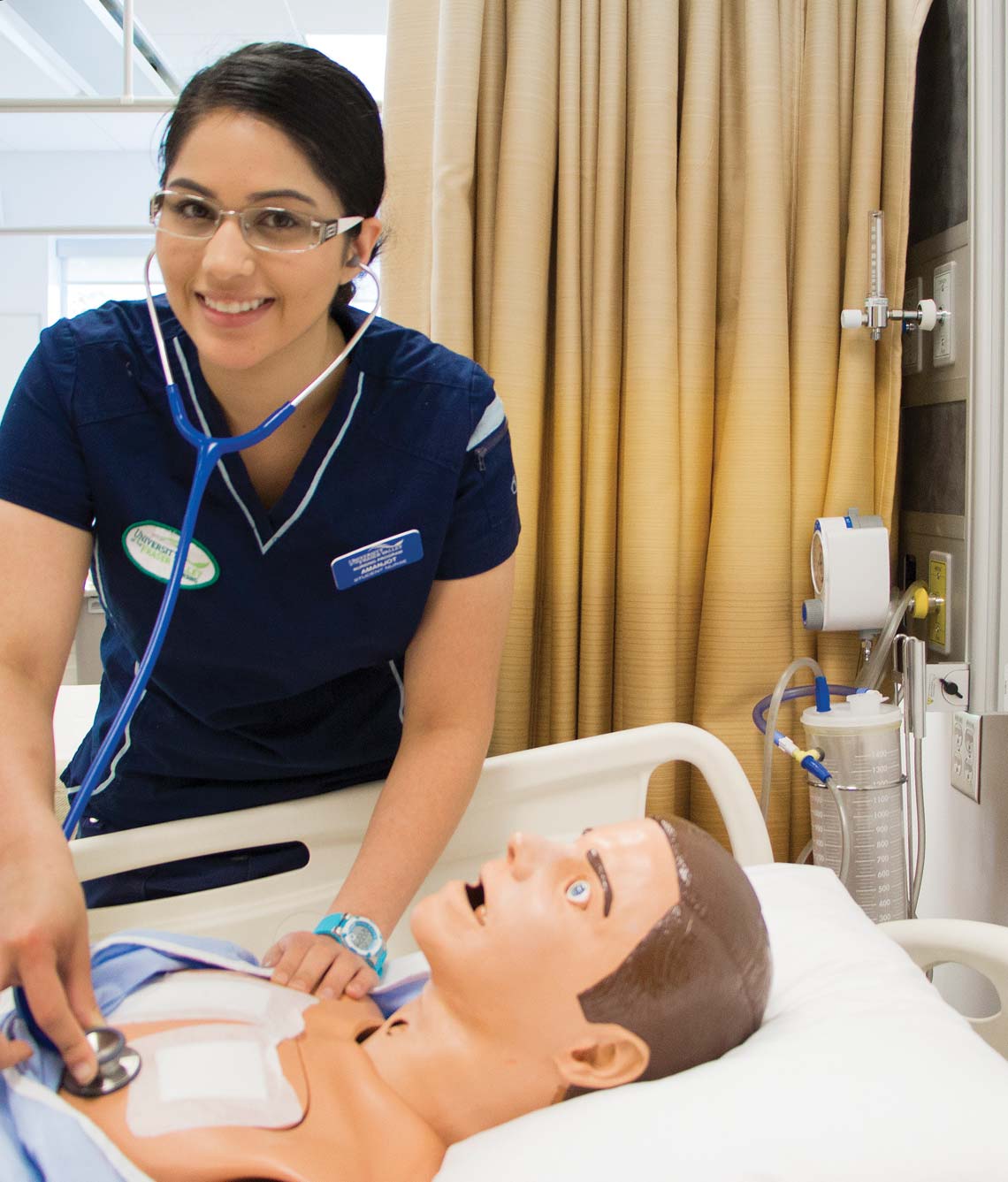Make a healthy difference as a Registered Nurse

Launching a career as a nurse can be hugely rewarding. Because you provide care to patients during their happiest or most vulnerable moments, you get to have a real impact on their lives.
UFV’s Bachelor of Science in Nursing program offers clinical experiences in every year of the program. You get to work in hospitals or community agencies, gaining hands-on experience at every step to ensure that you are fully equipped to meet challenges when you enter the field.
UFV’s state-of-the-art facilities in Chilliwack provide a safe learning environment where you have the opportunity to train with high-tech manikins programmed to simulate clinical and emergency scenarios.
To accommodate your unique needs, you have three options for degree completion. You can study at a steady pace and graduate in four years or take the fast track to graduate in three. Recognizing that careers change and evolve, the third option allows Licensed Practical Nurses (LPN) access into the second year of the Bachelor of Science in Nursing (BSN) program.
UFV’s Bachelor of Science in Nursing program abides by high standards: as a result, the program received the highest level of accreditation from the College of Registered Nurses of British Columbia (CRNBC). UFV graduates are the living proof — on registration exams, they achieve grades well above both the provincial and national averages.
Career Outlook for Registered Nurses
While the College of Registered Nurses of British Columbia currently registers about 40,000 Registered Nurses and Nurse Practitioners, they are still in short supply. Population growth and an aging population have created a strong demand for nurses in all regions and settings in British Columbia.
According to WorkBC, the growing demand for nurses will account for 19,850 cumulative job opportunities from 2018 to 2028, with well over half opening in the Lower Mainland and Fraser Valley.
In addition, proposed strategies to control the increasing costs of health care delivery put nurses at the heart of the solution. With the ability to provide patient care alongside doctors or in self-directed roles as nurse practitioners, the role of nurses continues to grow and so does the demand for their services.
